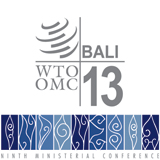9TH WTO MINISTERIAL CONFERENCE, BALI, 2013
Briefing note: ‘Non-violation’ in intellectual property — up for a decision in Bali
One decision ministers are expected to take at the Ministerial Conference in Bali will shield intellectual property for two more years from a particular type of legal dispute known as “non-violation” cases.
Updated: November 2013
THIS EXPLANATION is designed to help the public understand developments in the WTO. While every effort has been made to ensure the contents are accurate, it does not prejudice member governments’ positions.
> Ministerial Conferences
> Bali Ministerial Conference
> Other briefing notes
WTO agreements on goods and services allow countries to bring cases against each other if one feels that another government’s action or a specific situation has deprived it of an expected benefit, even if no agreement has been directly violated.
But opinions differ among WTO members on whether non-violation cases should apply to intellectual property. The Trade Related Aspects of Intellectual Property Rights (TRIPS) Agreement contains a temporary restraint (a “moratorium”, Article 64.2) on bringing non-violation complaints.
This has been extended several times, more recently from one Ministerial Conference to the next. In October, the TRIPS Council agreed to recommend extending the present period until 31 December 2015, a decision ministers are expected to take in Bali.
In October, members also agreed to work more intensively than before once ministers adopt the new extension. In the new year, they intend to discuss seriously whether these cases should be allowed for intellectual property, and if so, how this might be done.
The moratorium first lasted five years from when the TRIPS Agreement entered into force in 1995. Since then, the suspension has been extended several times. Recently members have agreed the extensions at ministerial conferences every two years, with relatively little discussion on the substance.
In the past when the issue has been discussed, four options have been considered, as listed by the TRIPS Council chairperson in May 2003:
- banning non-violation complaints in TRIPS completely
- allowing the complaints to be handled under the WTO’s dispute settlement rules as applies to goods and services cases
- allowing non-violation complaints but subject to “modalities” (i.e. ways of dealing with them)
- extending the moratorium (for another fixed period)
The draft decision
This is the decision that the TRIPS Council agreed on 7 October 2013 should be submitted for ministers to adopt at the Bali Ministerial Conference.
“We take note of the work done by the Council for Trade-Related Aspects of Intellectual Property Rights pursuant to our Decision of 17 December 2011 on ‘TRIPS Non-Violation and Situation Complaints’ (WT/L/842), and direct it to continue its examination of the scope and modalities for complaints of the types provided under subparagraphs 1(b) and 1(c) of Article XXIII of GATT 1994 and make recommendations to our next Session, which we have decided to hold in 2015. It is agreed that, in the meantime, Members will not initiate such complaints under the TRIPS Agreement.”
More: here
Find out more:
- www.wto.org/trips
- Briefing note on TRIPS
- How to follow current issues in intellectual property in the WTO
- Latest developments: this year’s regular committee meetings: March 2013, June 2013, October 2013
The areas of intellectual property covered by the TRIPS Agreement:
• Copyright and related rights
• Trademarks, including service marks
• Geographical indications
• Industrial designs
• Patents
• Layout-designs (topographies) of integrated circuits
• Undisclosed information, including trade secrets
These are explained here.
